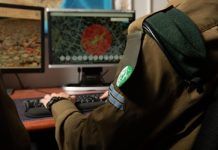Professor Fraser Sampson, the Biometrics and Surveillance Camera Commissioner for England and Wales, will step down from his role in October. In a letter published on 7 August, Sampson officially handed his resignation to the Home Secretary, confirming that he would resign from his post on 31 October 2023. Sampson was originally appointed in March 2021.
Behind the resignation is the expectation that the functions of the Biometrics & Surveillance Camera Commissioner are to be subsumed by the Investigatory Powers Commissioner and Information Commissioner’s Office (ICO). This move has been outlined in the Data Protection and Digital Information Bill, which is currently going through the legislative process.
The Bill makes amendments to the Protection of Freedoms Act 2012, where both the office of Commissioner for the Retention and Use of Biometric Material and the office of Surveillance Camera Commission will be abolished. The Surveillance Camera Code is also being abolished as a result.
In the Bill’s explanatory notes, the Government argued that by doing so, it will “simplify oversight and remove duplication of functions”, with the ICO already having oversight of the use of personal data captured via surveillance camera systems.
The ICO will consequently continue to provide independent guidance and regulation of the use of surveillance camera systems, designed to make it “easier for the police, local authorities and the public to understand and comply with any requirements”.
Overall, the Bill is intended to make the EU General Data Protection Regulation (GDPR) more practical and less burdensome, while maintaining high data protection standards. It is expected to pass through the legislative process and become a new Act sometime in 2024.
Sampson had previously voiced his concerns over moving functions of his role into the ICO. The Government scrapped its original plans for such a move in June 2022.
He had highlighted that the functions of the Surveillance Camera Commissioner, in particular, was a strategic role in providing oversight of the surveillance of public space. In a letter in November 2021, he explained: “Both functions are about much more than upholding data rights. Proposing their absorption by the ICO is to misunderstand their specific nature and importance of both.”








